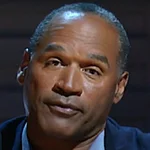 |
| LaTricia Harper Woods (left) and Ben Finzel |
The nation has once again reached another major inflection point in our history. As we all reel from the twin shocks of a continuing global pandemic and the murders of Ahmaud Arbery, Breonna Taylor, George Floyd and so many others, many of our institutions, corporations and organizations are vowing to do better and to be better.
But we have heard this before, haven’t we? How will this time be different? Will now be the time when all of those promises are manifested into positive, permanent action?
We hope so, but frankly, we have our doubts. The names above are but a handful of the many Black lives that have been taken in just the past few months and years. And while Black Lives Matter is at the center of attention and deservedly so, it’s not just Black lives that are being lost to racial injustice, brutality and hate crimes. It’s Hispanic lives, Asian-American lives, LGBTQ and Native-American lives as well. And the list of names that are regularly repeated during protests still doesn’t always include the trans people of color who have been killed, their lives ended but not honored in headlines or even recognized in public. Names like Nina Pop, Dana Martin and Muhlaysia Booker. If that wasn’t enough for change then, why should we believe that now will be any different?
With that said, we are hopeful that this moment will be different because, for many of us, it is more than a moment or a movement, it is a sign that we must all change our social conscience. When the cameras turn away and begin filming something else, when the next crisis erupts and attention turns elsewhere, it is imperative that action and engagement on the pandemic of racism continues. That will be up to all of us. We must keep up the pressure on all of our institutions to ensure that the longer-term engagement that is necessary to really change the current reality takes hold.
For that to happen, each of us is going to have to do more than just talk. We must act. But action without intention is meaningless at a time when so much is at stake and so much is in doubt. As communicators, we understand that: it’s what we counsel our clients to do every day. Now, we must be in the vanguard of helping our clients understand their roles and determine how to authentically and appropriately engage and when to speak out and what to say.
This is not going to be easy. But change is possible. In fact, that’s the mantra of the national network of independent PR firms focused on multicultural and LGBTQ marketing that we started last year. Our mission is to help companies and organizations communicate across cultures. In that spirit, we’ve developed and are sharing a starting point for making these decisions that we hope communicators and their colleagues will use as part of their toolkit for action: a list of five actions to consider and conduct that we’re calling The Change Agenda. The agenda includes the following action steps:
First: Check your policies and practices. What are your employment policies? Are they fair? Equitable? Do people working the same jobs make the same salaries? Are promotions equitable? Where do you recruit? Who do you recruit? What is your workplace like for people of color?
Second: Check your speech. What have you said in the past? What are you saying now (if anything)? Who is speaking for you? Why are you speaking out and when have you done it?
Third: Chart your course. Determine what you will do and how you will hold yourself accountable over time. Will you share your progress? What actions will you take? Sponsorships you will develop? Funding you will provide? Partnerships you will foster?
Fourth: Be the change. Acknowledge your past mistakes and own them. Commit to specific actions that will address them. Act. Hold yourself accountable by reporting on your progress over time.
Fifth: Speak out, step out and stand out. Put your money, your time and your focus where your mouth is and don't stop.
The Change Agenda is informed by our lived experience and our work with clients addressing these issues. We’ve each witnessed similar moments in our lifetimes. We remember Emmett Till, Rodney King, Sandra Bland, Freddie Gray and the countless lives lost over the last 400 years of the original pandemic—racism—in this country.
We know that effective communications is not a band-aid to cover over wounds, but an acknowledgement of the wounds matched to a commitment and series of actions to heal them over time. To be clear, communications is but one part of the action needed today and tomorrow in every company and organization across the country. But communications and communicators can lead the way in making sure these conversations take place and that concrete, specific, positive, sustained action results from them.
The American People are watching. And they are paying attention. They are looking to see how our nation’s business, political and societal leaders are reacting. And they are taking notes and keeping track of who is engaged and who is sitting on the sidelines. It’s not enough to simply say “Black Lives Matter,” we must each work together to act to make that statement true.
***
LaTricia Harper Woods, APR, is principal at Mahogany Xan Communications in Phoenix, Arizona and a partner in The Change Agencies, the first and only national network of independently-owned public relations firms focused on inclusive marketing to multicultural and LGBTQ communities. Ben Finzel is president of RENEWPR in Washington, D.C. and a partner in The Change Agencies.


 The techniques deployed by OJ Simpson's defense team in the "trial of the century" served as a harbinger for those used by Donald Trump... People worry about the politicization of medical science just as much as they fret about another pandemic, according to Edelman Trust Barometer... Book bans aren't restricted to red states as deep blue Illinois, Connecticut and Maryland challenged at least 100 titles in 2023.
The techniques deployed by OJ Simpson's defense team in the "trial of the century" served as a harbinger for those used by Donald Trump... People worry about the politicization of medical science just as much as they fret about another pandemic, according to Edelman Trust Barometer... Book bans aren't restricted to red states as deep blue Illinois, Connecticut and Maryland challenged at least 100 titles in 2023. The NBA, which promotes legalized gambling 24/7, seems more than hypocritical for banning player for placing bets... Diocese of Brooklyn promises to issue press release the next time one of its priests is charged with sexual abuse... Truth Social aspires to be one of Donald Trump's iconic American brands, just like Trump University or Trump Steaks or Trump Ice Cubes.
The NBA, which promotes legalized gambling 24/7, seems more than hypocritical for banning player for placing bets... Diocese of Brooklyn promises to issue press release the next time one of its priests is charged with sexual abuse... Truth Social aspires to be one of Donald Trump's iconic American brands, just like Trump University or Trump Steaks or Trump Ice Cubes. Publicis Groupe CEO Arthur Sadoun puts competition on notice... Macy's throws in the towel as it appoints two directors nominated by its unwanted suitor... The Profile in Wimpery Award goes to the Ford Presidential Foundation for stiffing American hero and former Wyoming Congresswoman Liz Cheney.
Publicis Groupe CEO Arthur Sadoun puts competition on notice... Macy's throws in the towel as it appoints two directors nominated by its unwanted suitor... The Profile in Wimpery Award goes to the Ford Presidential Foundation for stiffing American hero and former Wyoming Congresswoman Liz Cheney. JPMorgan Chase chief Jamie Dimon's "letter to shareholders" is a must-read for PR people and others interested in fixing America and living up to its potential... Get ready for the PPE shortage when the next pandemic hits... Nixing Netanyahu. Gaza carnage turns US opinion against Israel's prime minister.
JPMorgan Chase chief Jamie Dimon's "letter to shareholders" is a must-read for PR people and others interested in fixing America and living up to its potential... Get ready for the PPE shortage when the next pandemic hits... Nixing Netanyahu. Gaza carnage turns US opinion against Israel's prime minister. Trump Media & Technology Group sees Elon Musk's X as an option for those who want the free expression promised by Truth Social but without Donald Trump, owner of 57.3 percent of TMTG... Chalk one up for "anti-woke warrior" governor Greg Abbott as University of Texas lays off 60 DEI-related staffers... Five percent of Americans see the US as its own worst enemy, according to Gallup.
Trump Media & Technology Group sees Elon Musk's X as an option for those who want the free expression promised by Truth Social but without Donald Trump, owner of 57.3 percent of TMTG... Chalk one up for "anti-woke warrior" governor Greg Abbott as University of Texas lays off 60 DEI-related staffers... Five percent of Americans see the US as its own worst enemy, according to Gallup.


 Have a comment? Send it to
Have a comment? Send it to 
No comments have been submitted for this story yet.